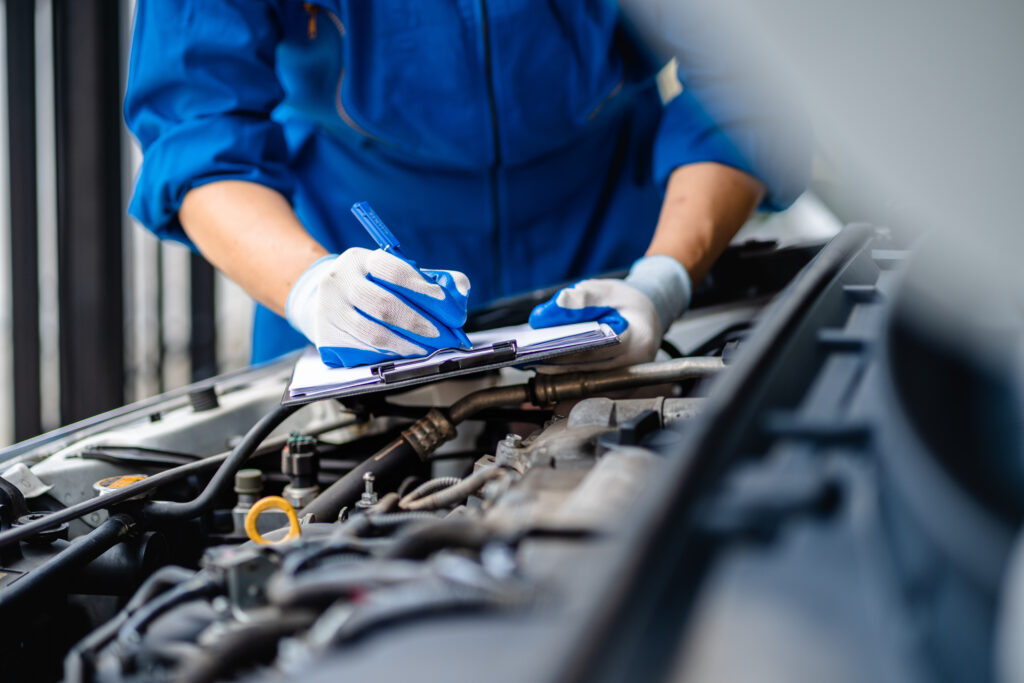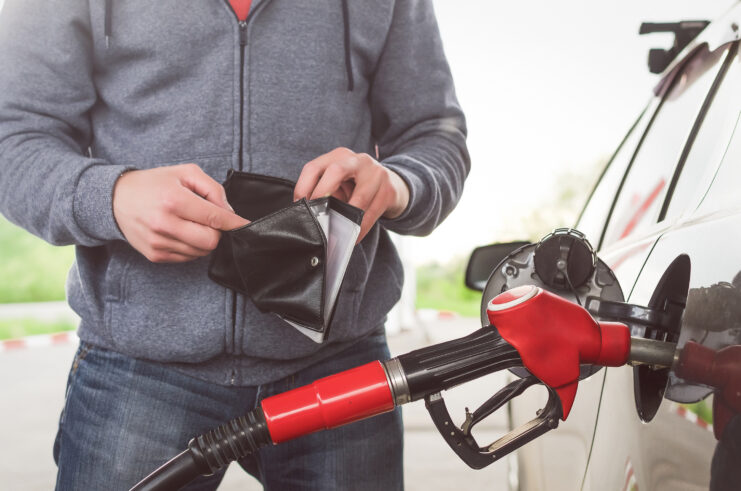Every trip to the gas pump can feel like a hit to your wallet. But even with rising gas prices, small changes to your driving habits and car care routine can help you save money and lower the impact your driving has on the environment.
In this guide, you’ll learn simple tips and tricks to help you improve your fuel economy, cut down on fuel consumption and make the most out of every gallon.
How Smarter Driving Pays Off
Economic Benefits
Reducing fuel consumption means fewer trips to the gas station, which translates to noticeable savings over time. By adopting fuel-efficient driving habits, you’ll stretch your budget further and keep more money in your pocket for other expenses.
Environmental Impact
Small changes, like maintaining steady speeds and avoiding unnecessary idling, can lower your carbon footprint, allowing you to contribute to a cleaner, healthier planet.
Vehicle Longevity
Smooth acceleration, proper maintenance and keeping your tires at the right pressure reduce strain on your engine and tires. This not only improves performance but also helps your vehicle last longer, saving you from costly repairs down the road.
Key Driving Habits for Fuel Efficiency
Smooth Acceleration and Braking
Avoid slamming on the gas or brakes — rapid starts and sudden stops use more fuel than necessary. Instead, accelerate gradually and coast to a stop whenever possible to improve your gas mileage.
Maintain Steady Speeds
Keeping a consistent speed is key to fuel efficiency. Use cruise control on highways to avoid unnecessary speed changes and aim to drive at speeds between 50 and 60 mph to minimize fuel usage.
Avoid Excessive Idling
Turn off the engine if you expect to be stationary for more than a minute to conserve fuel and reduce emissions. Leaving your engine running while parked or at a long stop burns fuel without moving your car.
Importance of Vehicle Maintenance

Proper Tire Pressure
Under-inflated tires create more rolling resistance, which forces your engine to work harder and use more fuel. Over-inflated tires, on the other hand, can reduce traction and cause uneven wear. Check your tire pressure regularly and keep it at the manufacturer-recommended PSI for the best performance and mileage.
Regular Oil Changes and Engine Maintenance
Using the motor oil recommended by your car’s manufacturer helps your engine run smoothly and efficiently. Clean air filters are equally important, as clogged filters make the engine work harder, reducing fuel economy. Routine maintenance ensures your vehicle stays in peak condition and uses fuel more effectively.
Check the Check Engine Light
Ignoring the check engine light can cost you more than just repairs. Issues like a malfunctioning oxygen sensor or spark plugs can lead to poor engine performance and higher fuel consumption. Addressing these problems early keeps your car running efficiently and prevents unnecessary fuel waste.
Reducing Weight and Drag
Lighten the Load
Got some extra junk in the trunk? Extra weight in your car means your engine has to work harder, using more fuel. Removing unnecessary items from your trunk and backseat can significantly improve your gas mileage, especially during longer trips. For every 100 pounds of extra weight, fuel efficiency can drop by up to 2%. Keeping your car light is an easy way to conserve fuel and save money.
Improve Aerodynamics
Your car’s shape plays a big role in how efficiently it moves through the air. Roof racks, for example, create drag that forces your engine to consume more fuel, especially at highway speeds. Removing unused roof racks and keeping windows closed when driving fast can help your car glide more smoothly and efficiently. Vehicle designs are already optimized for fuel efficiency, so minimizing external modifications helps maintain that balance.
Strategic Trip Planning

Combine Trips
Every time you start your car with a cold engine, it uses more fuel until it warms up. By bundling errands into a single trip, you can avoid repeated warm-ups and improve fuel efficiency.
Optimize Routes
Sitting in traffic or taking longer routes wastes unnecessary fuel. Use navigation apps with real-time traffic updates to choose the fastest, most efficient routes. These tools help you avoid delays and reduce fuel consumption.
Seasonal Adjustments for Efficiency
Summer Tips
Air conditioning can significantly impact fuel efficiency, especially at lower speeds. When possible, roll down your windows instead of using the AC during city driving. Parking in shaded areas helps keep your car cooler, reducing the need to blast the air conditioning when you return.
Winter Tips
In colder months, idling your car to warm it up wastes fuel. Instead, start driving gently after starting the engine to warm it up more efficiently. Parking in garages or covered spaces also helps maintain a warmer engine temperature, reducing warm-up times and saving fuel.
Choosing the Right Fuel and Technology
Fuel Type Matters
Stick to the fuel grade your car’s manufacturer recommends — it’s all your engine really needs to run efficiently. Higher-octane gas might sound like a better choice, but unless your car specifically calls for it, it won’t boost your fuel economy.
Technology Tools
Newer cars are packed with smart features to help you save gas without even thinking about it. Start-stop systems, for instance, turn off the engine when you’re idling so you’re not burning fuel at a standstill. Radar cruise control also helps maintain a steady speed and avoid unnecessary acceleration, improving efficiency on highways.
Let Apex Automotive Help You Stay Fuel Efficient
Adopting fuel-efficient driving habits helps you get more out of every tank, reduces your car’s wear and tear and lowers your environmental impact. Small changes, like smoother driving and regular maintenance, can make a big difference in your budget and your car’s performance.
Make your vehicle more fuel-efficient and cut down on trips to the pump by keeping your car maintenance up to date at Apex Automotive. From tire checks to oil changes, our skilled technicians ensure your vehicle runs smoothly, helping you save money and reduce fuel waste.
Make an appointment today and start saving on every mile you drive.


